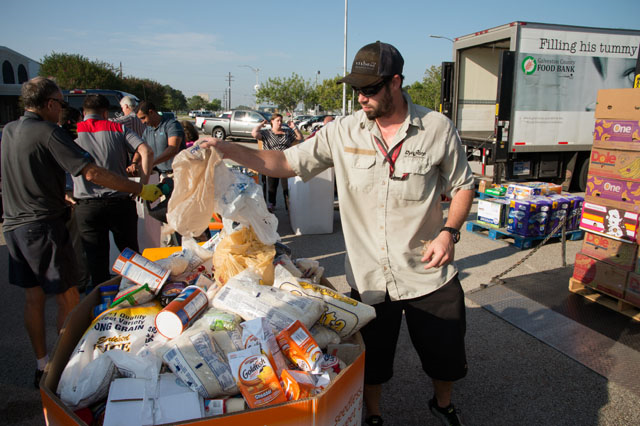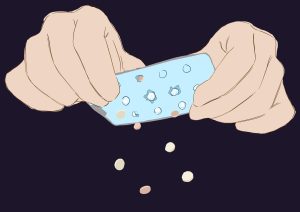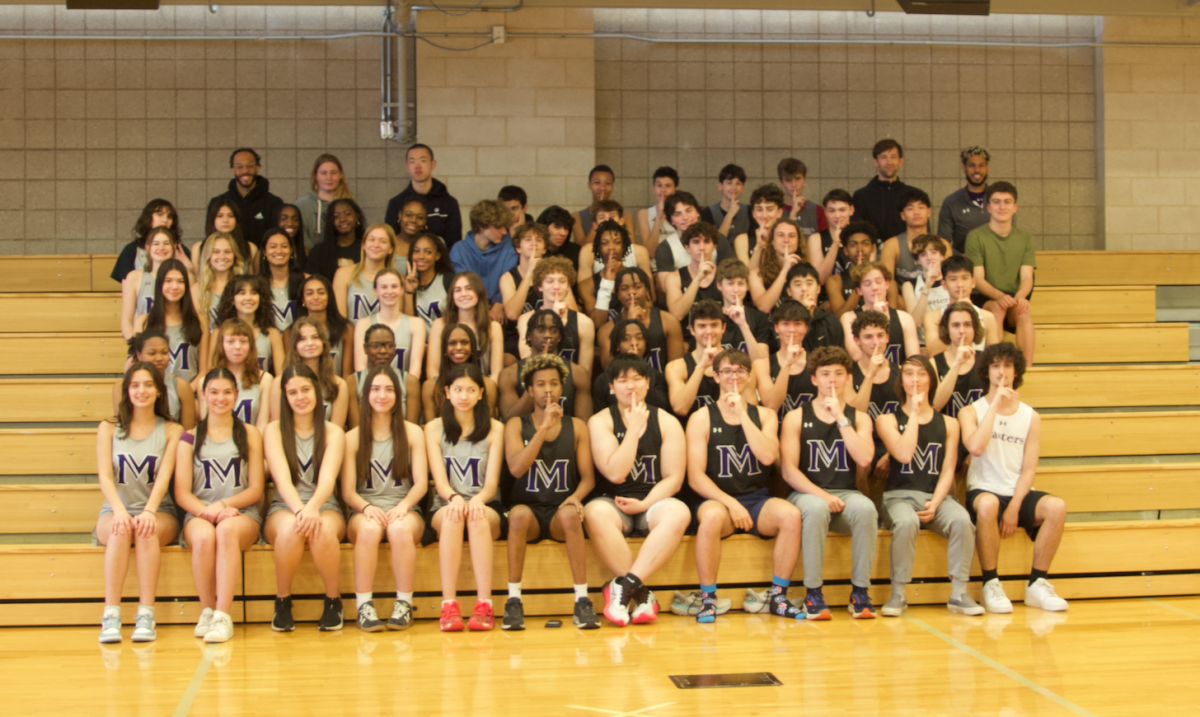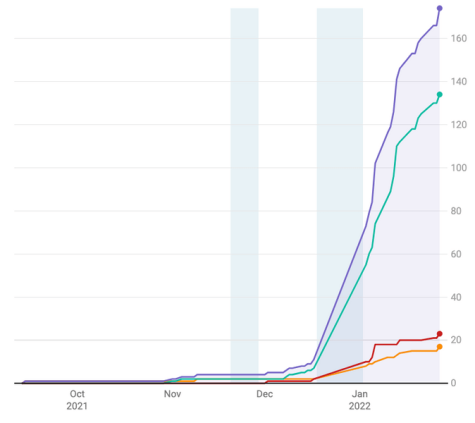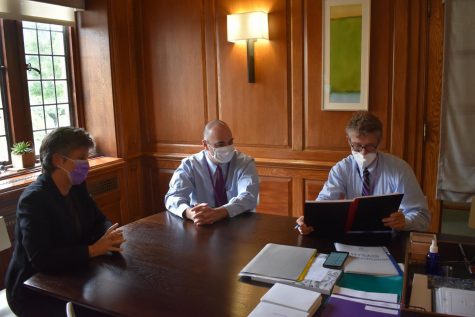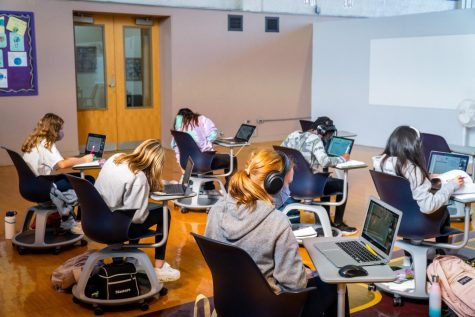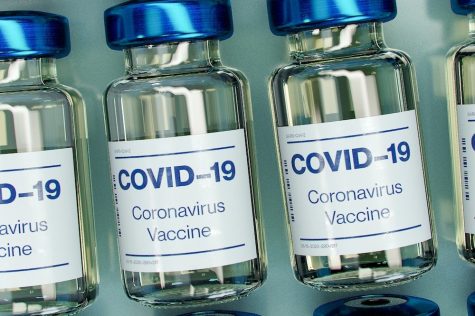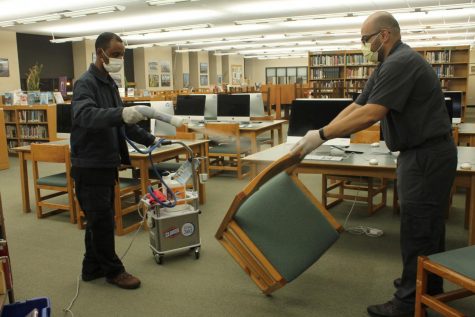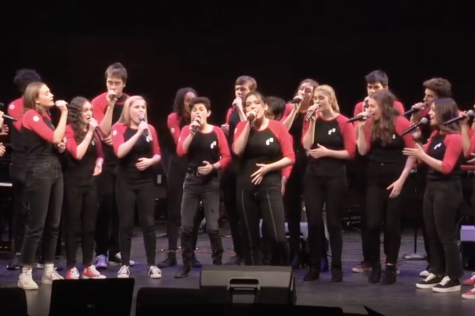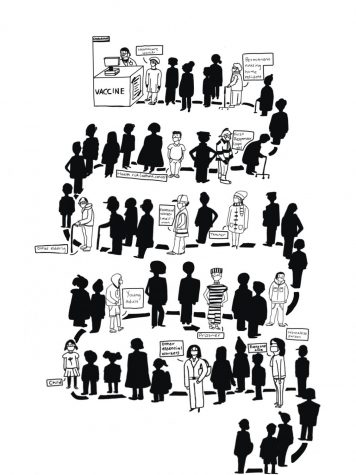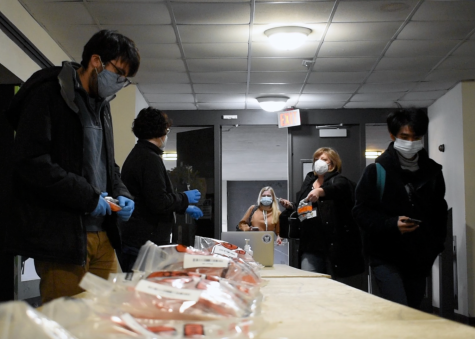The coronavirus is not a meme; it’s serious
Younger generations want to “spread positivity,” but utilizing social media as an outlet is simply not enough.
For those who can afford to do so, supporting a local food bank or donating to a medical organization is an affective response to the coronavirus pandemic
March 22, 2020
While people across the country appear to be respecting guidelines to stay at home and “social distance,” this practice is understandably not all that much fun. With people getting bored in the past few days, many challenges have spread across Instagram – much like the virus – in an attempt to combat the negativity in the air.
Girls are posting pictures of themselves on their Instagram stories and tagging others to do the same to “spread positivity.” Soccer players are juggling toilet paper and seeing if they can do it better than their teammates. Boys felt left out of the girls’ challenge so now they’ve started a similar one of their own. Is this what our lives are coming to?
When people have been tagged to complete these challenges, they will often repost the original Instagram story of who nominated them on their personal story. People do this because they want to feel good about themselves and be accepted by their peers, but in truth, it is somewhat narcissistic act, which cannot be considered “something positive” for the world at this time.
The underlying intention of the “positivity” challenge is completely legitimate, though in a time of crisis, to be so self-centered and restricted to the lens of social media, is troubling. This isn’t about you. If you really want to do something positive in the midst of all this chaos, there are many more-appropriate alternatives.
For those who are financially able, make a donation to a food bank or medical organization. Offer to pick up groceries for an elderly member of your community. Call your grandparents or someone who you know might be alone at this time. Send any masks you might have lying around to hospitals that need them more than you do. Take-out from a local restaurant. When you do these things, you will truly feel satisfied with yourself and the positive impact you’ve made on the situation; but in the meanwhile, stop selling yourself short and wasting your time “spreading positivity” on social media. We need to face our fears and make a change; otherwise, this virus is going to get the best of all of us.
On March 12, Taylor Lorenz published an article in The New York Times entitled, “Where Westchester Teens Get Their Coronavirus News” which highlighted the meme accounts that have been created on social media by local students to supposedly make sense of the chaotic events occuring at this time.
By their very nature, these meme accounts are absurd and completely ignorant of the situation at hand and they are facilitating an improper response from the younger generation.
Understandably, people find these memes funny. Lorenz notes that memes can unite a common audience and can bring comedic relief in a time of tragedy. But nothing about the current state of the country and the world is a joking matter. What’s even more saddening is the fact that one of the most, if not the most, renowned news organization in the world, The New York Times would put a spotlight on these “memers.” Lorenz is a “technology reporter covering internet culture” and while she may be doing her job, by writing this piece and acknowledging these accounts, she is putting forth the message that it is somehow alright to joke about something as detrimental as a global pandemic.
There’s a meme made out of President Trump saying “We’re all in this together,” as a throwback to High School Musical, but in some ways he is absolutely correct. People are blaming the federal government for not doing enough to support those in need – who don’t have masks, who are unemployed, who don’t have food – but the United States is a country founded on democracy – the federal government could be doing more, but part of the responsibility lies in our hands too.
People might feel like what they are doing is funny, or necessary because everyone else is doing it, but if you chose to tag along, you’re not helping.
Dr. Deborah Birx, the response coordinator for the White House coronavirus task force has said time and time again that the younger generation plays a crucial role in slowing down the spread of the virus. Stop wasting your time spreading nonsense on social media and using the excuse of “I can’t take all this coronavirus stuff right now. I need a break.” If you’re sitting on your phone, in your bed all day, think about the people who have it much worse than you – they have lost their job, they are going hungry, they’re sick. They’re the ones that need a break from all this. They’re the ones that need support.
I’ve seen hundreds of people reposting on their stories with #challenge accepted, but it’s time that people accept the real challenge and do their part – make a donation, help out the elderly, and support those around you who are in dire need of assistance.
Read Schiciano’s previous piece “Social media does not suffice as a platform for advocacy”




